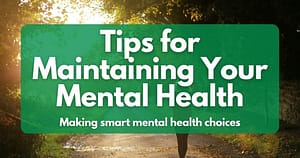[0:00:00] Hi, everyone. It’s Pete from Achieve Tutorials. I want to start today with a little story about my dog. A couple of years ago, we were in Michigan, walking through the woods, and he took off into the woods, had a run, came back with a snout full of porcupine quills. We couldn’t get all the porcupine quills out, so I took my dog to the vet, and the vet told me they see two kinds of dogs. There are the dogs that get porcupined once and the dogs that get porcupined over and over and over.
[0:00:35] And my big hope is that my dog is the kind of dog that learns his lesson, that learns from his mistakes. And that got me thinking about mistakes in school and how valuable mistakes are. They’re an important part of your education, but also how you need to deal with mistakes in a way that makes them productive. Nobody likes making mistakes, of course. They can negatively affect your grades. They can be embarrassing.
[0:00:59] But the right kind of mistake can actually help you to learn. If you take academic chances and push the limits of your abilities, mistakes are inevitable, but they’re valuable as well. How you react to a mistake makes a difference, because every mistake is a learning opportunity, and the students who take advantage of those opportunities are the ones who excel in school. So what does the process of learning from your mistakes look like?
[0:01:23] Well, it can come in many different forms. For example, if you missed several questions on a math test for which you thought you knew the material really well, it’s really important to go back and look at each individual question and try to figure out what kind of mistakes you made. You may find that you really didn’t understand the material as well as you thought you did, and you need to change your study habits so that you’re going and looking back at the material in more detail and trying more challenging questions when you’re preparing for the test.
[0:01:52] Or you may find that you understood the material really well, but you made a ton of simple math errors, like negative sign errors. And what you need to do then is build in a self check on the math every time you see a negative sign so that you know you’re not going to make those mistakes again. There’s a little bell that goes off and says, I’ve got to check that. Or maybe you wrote what you thought was a really great essay for English, but you got a B- on it.
[0:02:18] Your job is to go back and figure out what it was that your teacher wanted from you in that essay that you didn’t give them. Did you not follow the directions they gave you? Did you not analyze your quotes in as much depth as your teacher wanted? Pay close attention to the teacher’s notes on your essay, but it’s also going to be important to go and talk to your teacher and to ask them what you can do in your process to make your essay better the next time.
[0:02:44] Whatever the mistake, you should try to identify three specific things. First, what happened? Second, why did it happen? And that one’s a little bit trickier. Was it a focus? Was it not preparation? Was it not following directions? And third, how can I change my behavior so that I can do better the next time? How can I avoid making that same mistake in the future? Well, I hope that helps and I will catch you next time.
[0:03:12] Thank you for watching. And for more information you can go to our website for more videos on our blog or subscribe to our YouTube or Instagram feeds. And don’t forget, Aim Higher.






